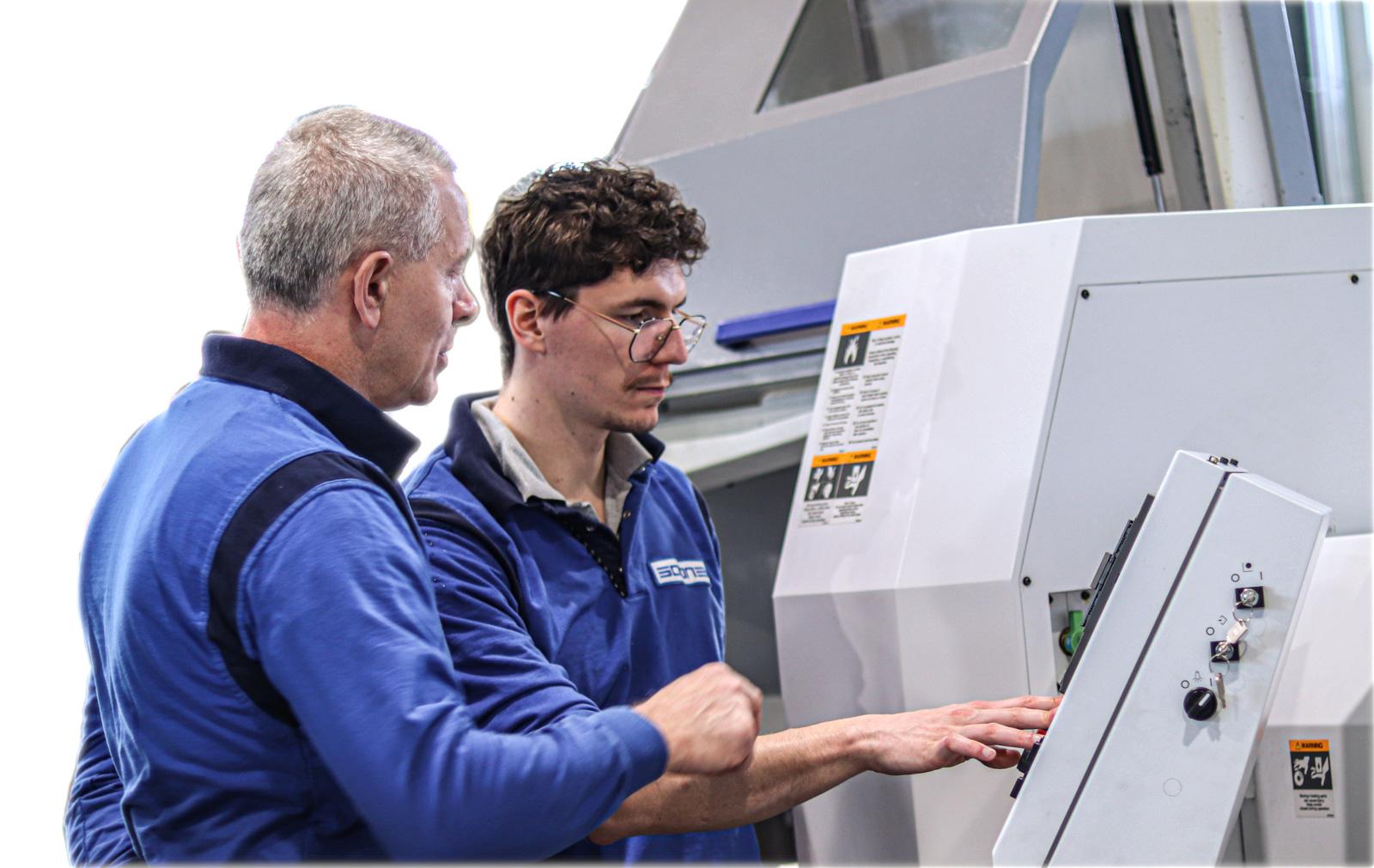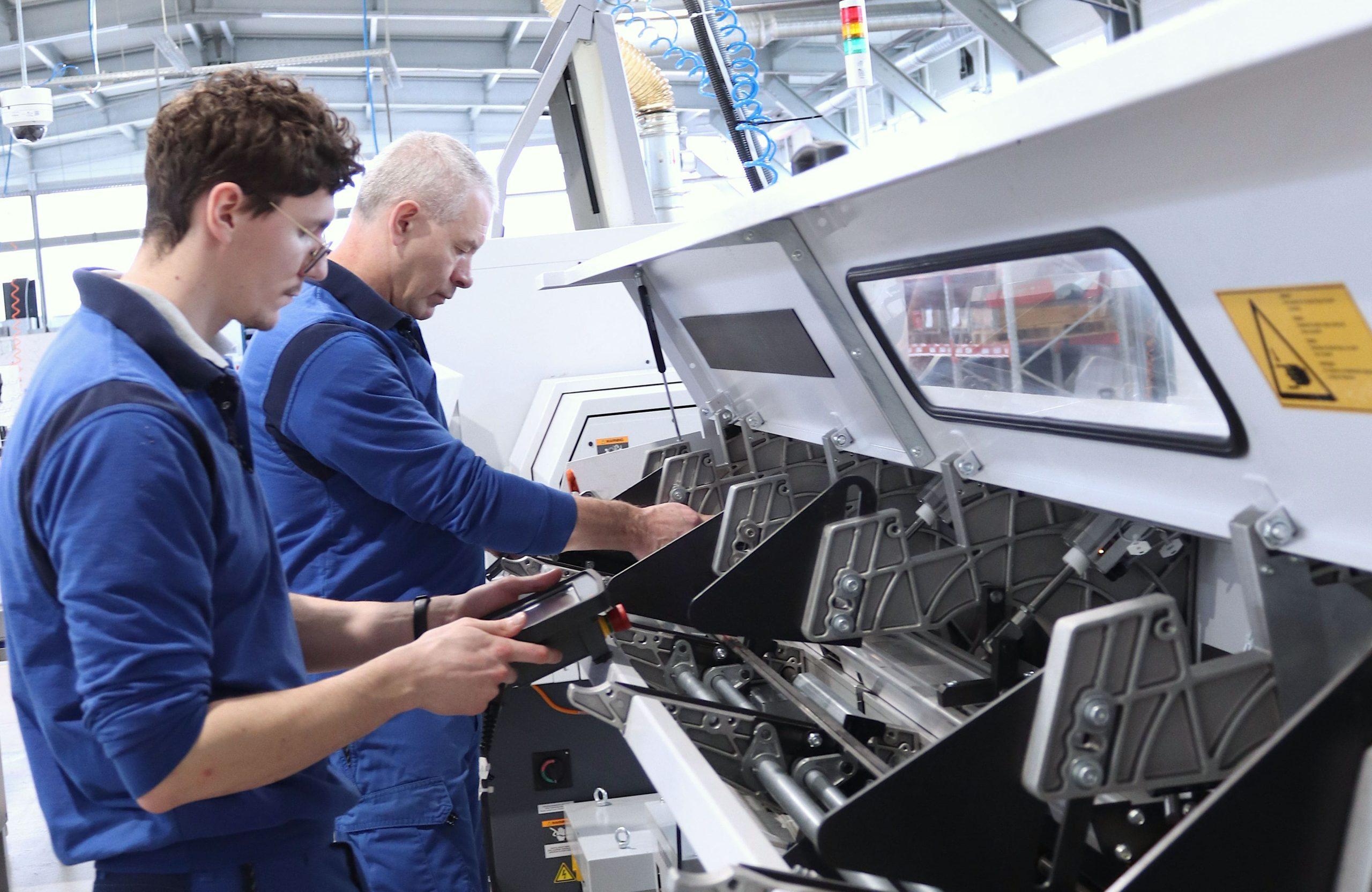CNC Programmer

Everything you should know when wanting to become a CNC programmer
The profession of CNC programmer can be an exciting and rewarding career path for anyone who enjoys creating new things, can solve problems, and has an eye for detail. The CNC machining industry is a modern and very fast-growing job market that provides an excellent field for properly trained and talented individuals. If you are trying to determine if CNC programming is the occupation for you, then you have come to the right place.
Keep reading for important information about a career in this profession.
Who is a CNC programmer?
A CNC programmer is a specialist who develops and runs programs that control CNC machines. His job is to convert the drawing documentation or 3D model of the part to be produced into the appropriate instruction for the machines to make the part. Thus, the job of a CNC programmer is to instruct the machines what sequence of movements it must perform to result in the designed part.
For whom is the job of a CNC programmer created?
The job of a CNC programmer can be performed by almost anyone who undergoes the appropriate training. However, due to the nature of the duties of this position, several qualities constitute a special predisposition for this profession. The best in this profession will cope with people:
What is a CNC machine?
CNC machines are a wide group of machines for machining a variety of materials whose movements are controlled by a computer. Unlike traditional machines, these machines can work independently without an operator. It is only necessary to program them to perform a specific task. Once the program is started, the machines independently carry out the set sequence of working movements. Thus, CNC machines are robots created to produce a variety of parts needed by humans.
How are CNC machines programmed?
Manufacturers of machines around the world use a variety of controllers responsible for managing the movements of machines. At the heart of the entire control system is one universal set of instructions responsible for telling the machines where and how to move. This instruction set, called G-code, is the primary programming language used throughout the CNC machining industry. Most machines speak a different “dialect” of g-code, so codes vary by type, make, and model. Each machine has an operator’s manual describing the specific machine’s code for specific functions.
What is the difference between a CNC programmer and a CNC operator?
From a technical point of view, the programmer is responsible for creating the code to control the machine. At the same time, the operator is involved in tasks related to the direct operation of the machine, such as clamping tools, fixing material in the machine chuck, controlling the cutting process, etc. In practice, however, it is very common for the programmer to perform operator duties. This is an excellent practice, as it is extremely difficult to be a good programmer without direct contact with the machining process on the machine. Personal verification of the program on the machine allows you to understand the entire process better and achieve the desired parameters faster.
Is it difficult to become a CNC programmer?
It is difficult to answer this question unequivocally. This is because, in most cases, a lot will depend on the predisposition of the candidate and also on the type of tasks that will be set before him. The world of CNC machines programming is a very extensive field of knowledge. Only the determination of a particular programmer will depend on how much he wants to develop. After all, it is quite another thing to program a simple plotter for cutting contours in sheets of material and something else to program multi-axis advanced machining centers or machine tools with multiple control channels requiring synchronization.
An advantageous circumstance is that knowledge can be acquired gradually, and only a mastery of the basics of arithmetic, geometry, and G-code structure is needed to take the first steps in programming.
How long does it take to learn programming?
In this case, too, a lot will depend on the candidate’s initial knowledge and individual aptitude. Assuming zero experience in the CNC machining industry with good aptitude, a month of intensive training time will allow one to take the first steps as a CNC programmer.
What are the key skills to become a good CNC programmer?
In principle, to become a CNC programmer, there are no special prerequisites other than the determination of the candidate. However, to make the training process go smoothly, a certain group of skills are very useful in this profession.

